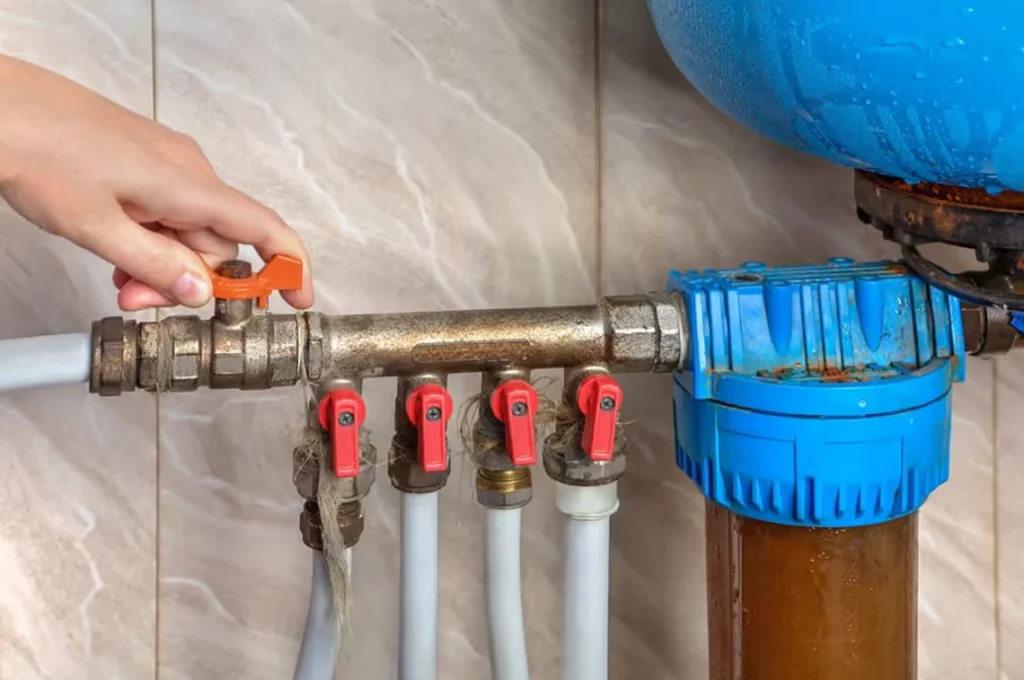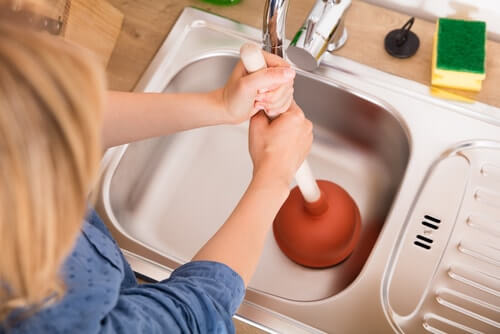Quick Pipe Repair Solutions for Urgent Issues Until Support Arrives
Quick Pipe Repair Solutions for Urgent Issues Until Support Arrives
Blog Article
What're your insights and beliefs on What to Do While Waiting for an Emergency Plumber?

Pipes emergency situations can strike at any moment, causing stress and possible damages to your home. Whether it's a burst pipe, a clogged up drainpipe, or a leaking faucet, recognizing just how to handle the circumstance till a specialist plumbing professional gets here can conserve you from additional complications. This write-up supplies vital emergency pipes suggestions to help you minimize damages and restore control throughout a pipes crisis.
Switch off the Water System
The first step in any kind of plumbing emergency situation is to shut off the water system. For localized problems, such as a dripping faucet or bathroom, switch off the valve near the component. In the case of a major leakage or burst pipeline, situate your home's main water shut-off valve and transform it off instantly. Understanding the area of these valves ahead of time can save useful time throughout an emergency.
Turn off Your Hot Water Heater
In certain emergency situations, such as a ruptured pipe, it's smart to shut down your hot water heater. This avoids getting too hot or damages to the unit when water stops moving. Turn off the power supply to the water heater (electrical or gas) and allow it cool down to prevent prospective threats.
Temporarily Stop a Ruptured Pipeline
A burst pipe can cause significant water damage in mins. To minimize the issue:
Call an expert plumbing technician promptly to attend to the issue permanently.
Have an Emergency Plumbing Kit
Prepare a basic pipes emergency situation package to manage small problems efficiently. Your kit should consist of:
Having these devices on hand can make a significant distinction in your capacity to take care of emergency situations.
Unclog Drains Pipes Securely.
A stopped up drainpipe can be an irritating and unpleasant concern. Right here's exactly how to tackle it:.
If these techniques don't function, prevent making use of extreme force, as it might worsen the obstruction.
Manage Overflowing Toilets.
An overruning bathroom can create instant chaos. Right here's what you should do:.
Address Little Leakages with Temporary Repairs.
Small leaks can swiftly become considerable issues if left uncontrolled. Use these momentary solutions until expert aid arrives:.
While these solutions aren't permanent, they can help lessen water loss and damages.
Take Care Of Frozen Pipes Thoroughly.
In chillier environments, icy pipelines are a common emergency. If you think a frozen pipeline:.
Know When to Call an Expert.
While quick fixes can assist briefly, specific plumbing problems need instant expert interest. Call a plumbing technician if:.
Immediately calling an expert guarantees the issue is resolved correctly and protects against more issues.
Avoid Further Damage.
Taking fast activity to reduce damage can conserve you money and time over time. Here's just how:.
Final thought.
Plumbing emergency situations can be overwhelming, but with the appropriate understanding and tools, you can take care of the circumstance effectively up until help gets here. By shutting off the water supply, resolving little leakages, and utilizing temporary solutions, you can reduce damages and maintain your home safe. Keep in mind, these tips are momentary solutions; constantly consult a qualified plumbing to take care of the source of the trouble. Preparation and fast thinking are your finest allies in any pipes emergency.
8 Helpful Tips for Managing Plumbing Emergencies at Home
If your plumbing system hasn’t failed once, wait for it because almost everyone has a story to tell. Sometimes, it could be simple emergencies such as a leaking pipe, a blocked cistern, or even a big burst pipe. In situations like this, you need to have some handy tips to save you some money and from possible damages.
Take care of minor issues early.
Sometimes, you could have avoided an emergency by taking proactive measures while it was still early. Some major plumbing emergencies can be a result of an ignored minor issue. We recommend that you have items like plumbing tapes and other related items. A plumbing tape can allow you to manage minor leaks before the plumber arrives.
Cut off the water supply.
This tip is essential in almost any type of leakage problem. For problems like minor leakages in the toilet or kitchen, turn off the supply that takes water to the affected pipes. If the leakage is a major pipe, you must shut off the supply valve to the entire building. This will help you avoid flooding your home and neighbors if you share a flat.
Know your plumbing system
Folks typically move into a new apartment without understanding the water supply around the building. This can prove disastrous if a water emergency arises and the plumber is far away. The previous tip will prove useless if you don’t practice this one. More importantly, know where your water shut-off valve is located – you’ll need that knowledge to prevent potential home floods.
Have some common handy tools
There are lots of plumbing emergencies that you can handle without hiring a plumber. That’s why you must keep some tools available always. Some tools that you can use to fix simple plumbing emergencies easily include plumbing tapes, screwdrivers, thread seal tapes, plungers, pliers, tape measures, and rubber gloves.
Insulate your pipes from cold
You’ll save yourself from many plumbing expenses if you protect your water pipes from the cold. This is because of the harmful effects that cold weather can have on your pipes. During winter, your pipes can burst from being overly expected to freezing temperatures. So, make sure insulators are there to keep the pipes working correctly.
Avoid practices that will clog your toilet.
Many people indulge in practices that can damage the plumbing system of the entire building. One of these is when they use their toilet to dispose-off garbage. They flush all kinds of things, such as paper towels, bandages, hairs, female sanitary products, etc., down the toilet. This will block your toilet in the long run, incurring unnecessary expenditures. Dump such waste in the trash instead.
Check your dials regularly.
Sometimes, there could be leakages in your home without noticing them in time. So, constantly monitor your water meter dial. If the dial is reading when there is nobody using water, this is an indicator that there is leaking. Check for leaks immediately. Call a plumber as soon as possible if you can’t find any.
https://www.constructionplacements.com/8-helpful-tips-for-managing-plumbing-emergencies-at-home/

Do you enjoy reading about Expert Tips for Emergency Plumbing Repairs? Write a comment below. We'd be delighted to know your insights about this blog entry. We are looking forward to see you back again soon. Do you know another individual who is occupied with the niche? Why not share it. Kudos for your time. Return soon.
Book-Now Report this page